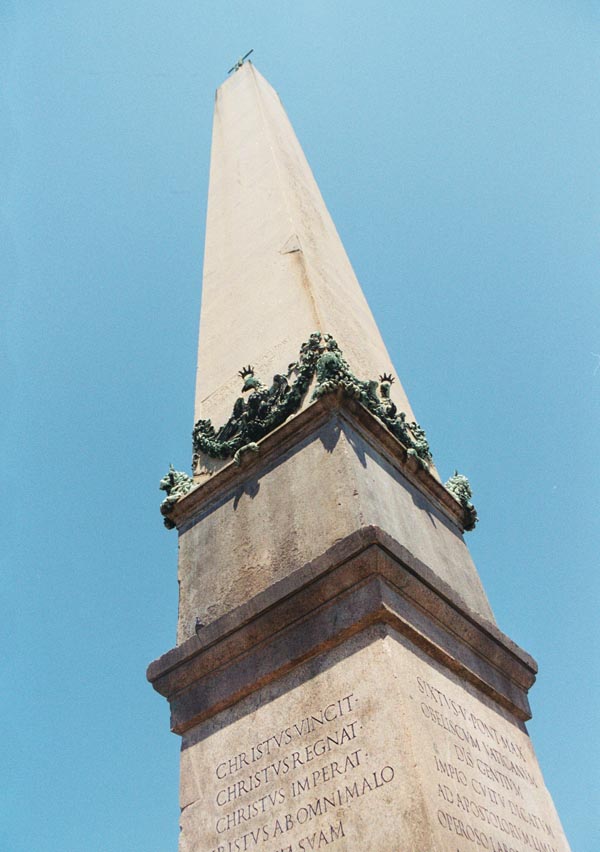
St. Peter's The Obelisk
Of the 13 Egyptian obelisks brought to Rome, the Vatican Obelisk is the only ancient obelisk in Rome to have remained standing since Roman times. It was the largest non-inscribed obelisk to leave Egypt, at 25.5 m high and weighing an estimated 326 tonnes. It was Gaius Caligula who had the obelisk bought to Rome in 37 AD.

The Egyptian Obelisk St Peter’s Square Città Del Vaticano
Description. At the center of Saint Peter's Square stands a 25.5 meter tall ancient Egyptian obelisk, 41 meters high including its added base. This obelisk is over 4000 years old and was brought to Rome from Alexandria by Emperor Caligula in 37 AD. The obelisk was removed from the "Circus of Nero" in Rome and placed at the center of the.
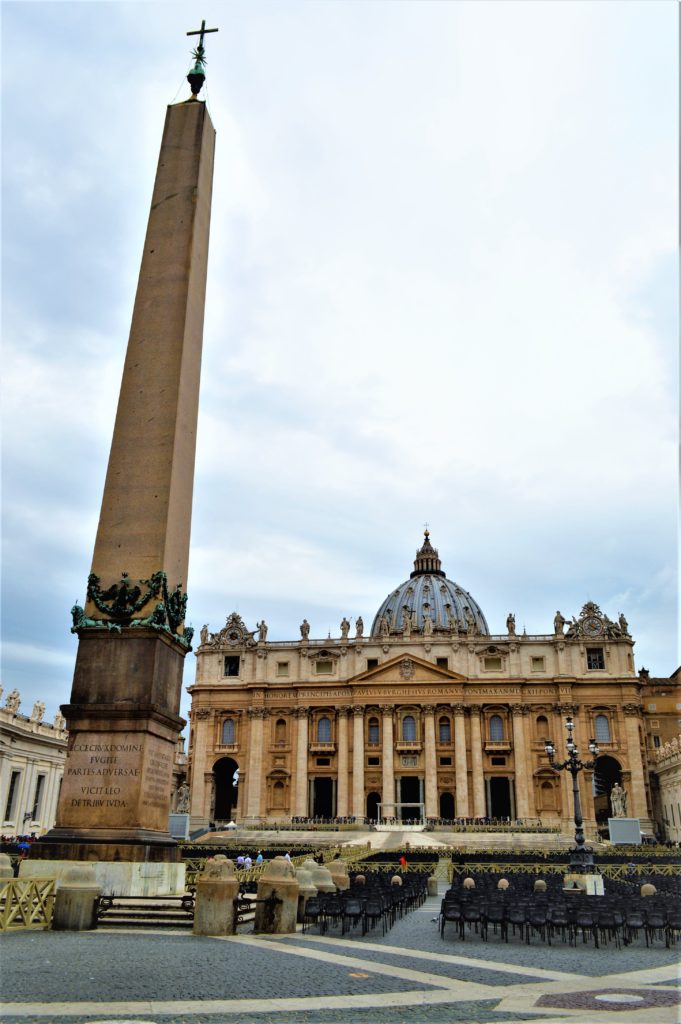
The Vatican Obelisk in St Peter's Square, Rome, Italy Round the World
From 'St. Peter's - Guide to the Basilica and Square'. A large pink granite obelisk can be admired in the center of the square. It was hewn from a single block and stands 25.31 m. high on a base 8.25 m. wide. The obelisk which comes from Heliopolis, Egypt, where it was built by the Pharaoh Mencares in 1835 BC in honor of the sun, was brought to.

Vatican Obelisk, (also known as St Peter's Needle, Piazza San Pietro
It was once mounted on what was commonly called "Saint Peter's Needle" during the Middle Ages—the obelisk that now stands prominently in the center of St. Peter's Square. The monolith.

17. The Obelisk at St Peters Square 25 Best Things to See in Vatica…
St. Peter's Square is a symbolic monument of the Italian Baroque. St. Peter's Square is the symbol of the Vatican City, it was built by Bernini between 1656 and 1667 under Pope Alexander VII (1655-1667), it is composed of two parts: a first trapezoidal space, delimited by two closed and converging straight arms that flank the churchyard, and.

St. Peter's Square, the Vatican Obelisk The ancient Obelis… Flickr
The Vatican Obelisk is 83.6 feet (25.5 meters) tall and weighs 326 tonnes. The base is adorned with four lions and bronze eagles which were added in 1713. Plaque marking the original location of the Vatican obelisk in the center of the Circus of Nero. St. Peter's Square is free to visit so you can admire the obelisk at any time.
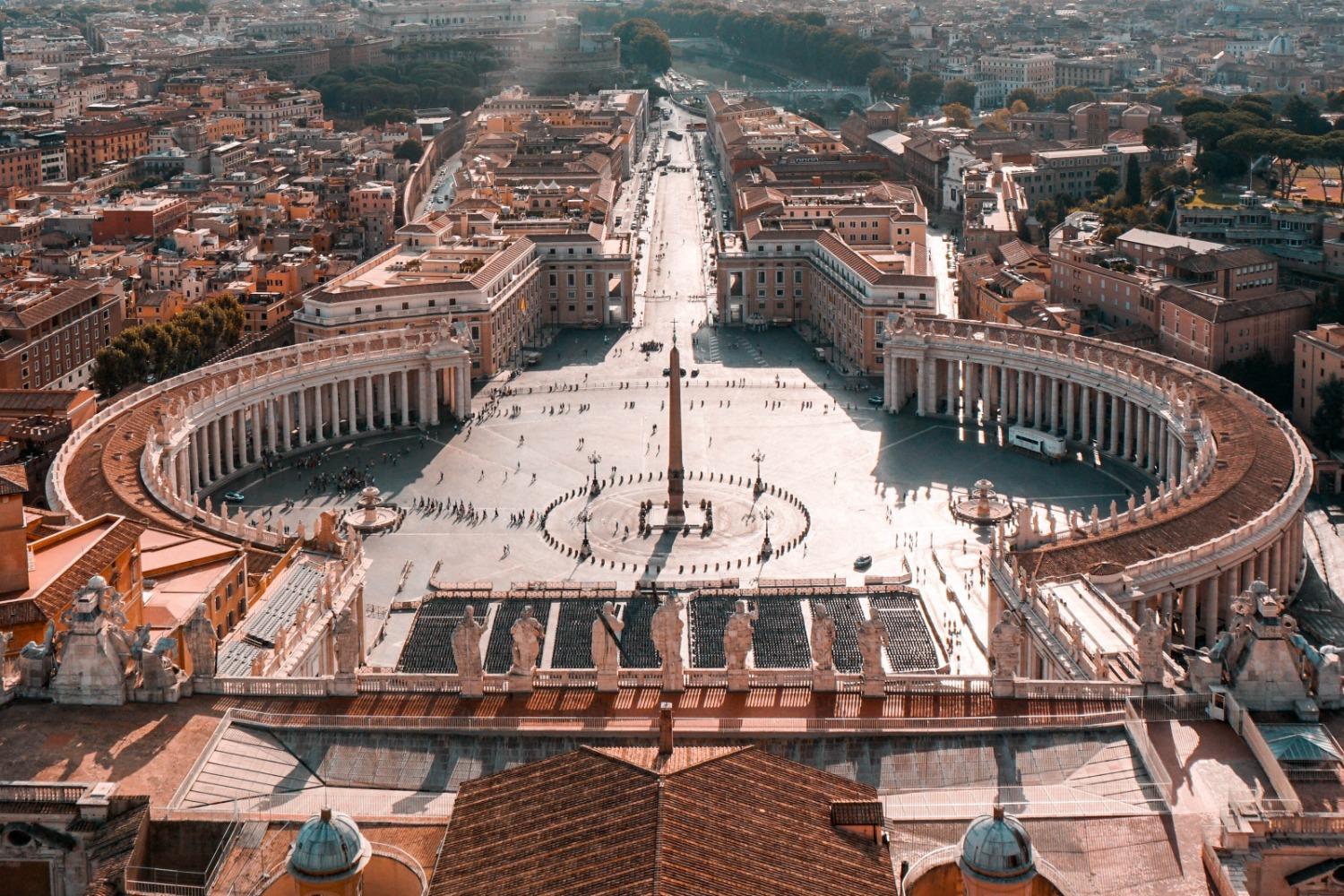
Vatican Obelisk Prime Matters
Saint Peter's Square, located in the heart of Vatican City, is one of the most iconic and visited places in the world. At the center of the square stands a remarkable monument that has captured the imagination of millions of visitors, the obelisk of Saint Peter's Square.
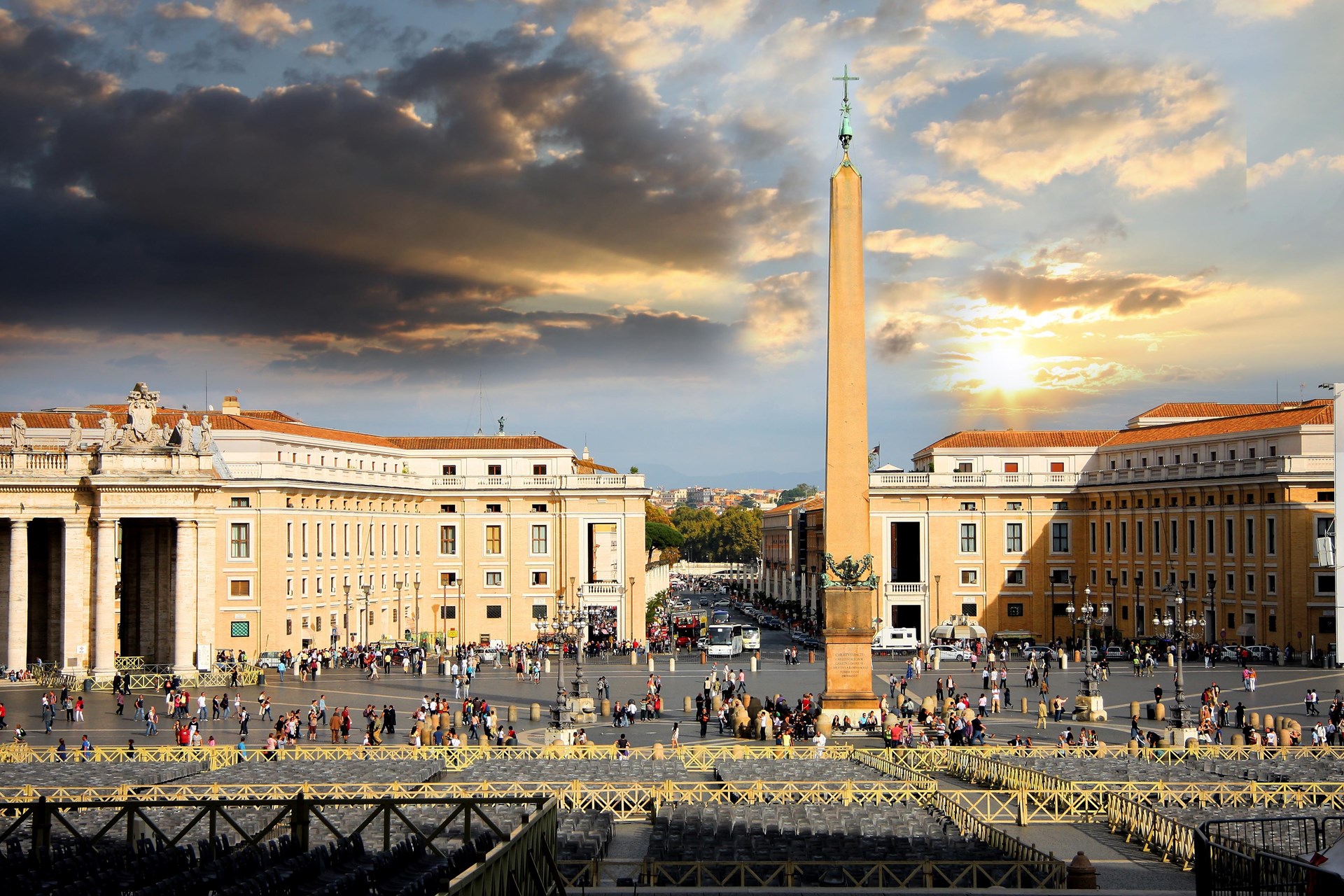
The Egyptian Obelisk St Peter’s Square Città Del Vaticano
Now located in the St. Peter's Square, the Vatican Obelisk was brought from Heliopolis during the reign of Caligula and set up on the spina of the Circus of Gaius and Nero in Rome. It is a monolith of red granite without hieroglyphs with a height of 25.36 meters. It has with dedications to Divus Augustus and Tiberius overlying partially.
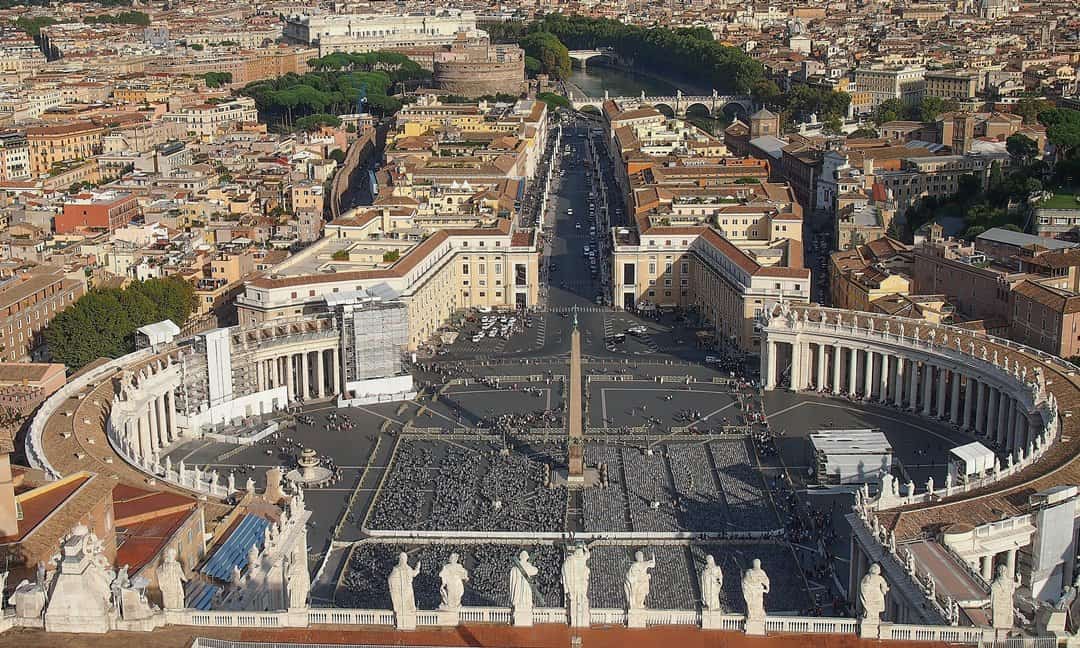
The Vatican Obelisk in St Peter's Square, Rome Archaeology Travel
Designed by Bernini in the 17th century around the St Peter's Square Obelisk, the view as you enter is truly awe-inspiring. The main aim of the square was to deliver the faithful to the Basilica. But it is also a place where you can simply stare in awe at the fabulous Cathedral. The unique shape of the square gives a unique view to visitors.

Egyptian Obelisk St. Peter's Square Vibrant Rome Photo… Flickr
According to a legend, when on September 10, 1586, the obelisk was hoisted onto its present base in St. Peter's Square, the ropes that supported it threatened to break. From the crowd that had flocked to see the event, there was a cry: "Water to the ropes!". It was the suggestion of a captain from Sanremo, a certain Bresca, who knew how.

The obelisk centered in Saint Peter's Square Vatican City, Rome, Italy
St. Peter's Square has the shape of an immense ellipse (the visitor who stands in one of the two centers of this ellipse, marked by two white disks, one on each side of the obelisk, sees a single row of columns), 320 m. long and 240 m. wide, at its broadest point. From 'St. Peter's Basilica - A Virtual Tour' by Our Sunday Visitor.

St. Peter's Square obelisk. Architecture Photos Brunch with Battutah
The St Peter's Square Obelisk serves not only as an historical monument but is also a massive sundial! Where is the Vatican Obelisk Located and How to Visit? vatican_obelisk_location. Good news - especially for budget travelers - is that the Vatican Obelisk, plus St Peter's Square and the Basilica are free to visit..
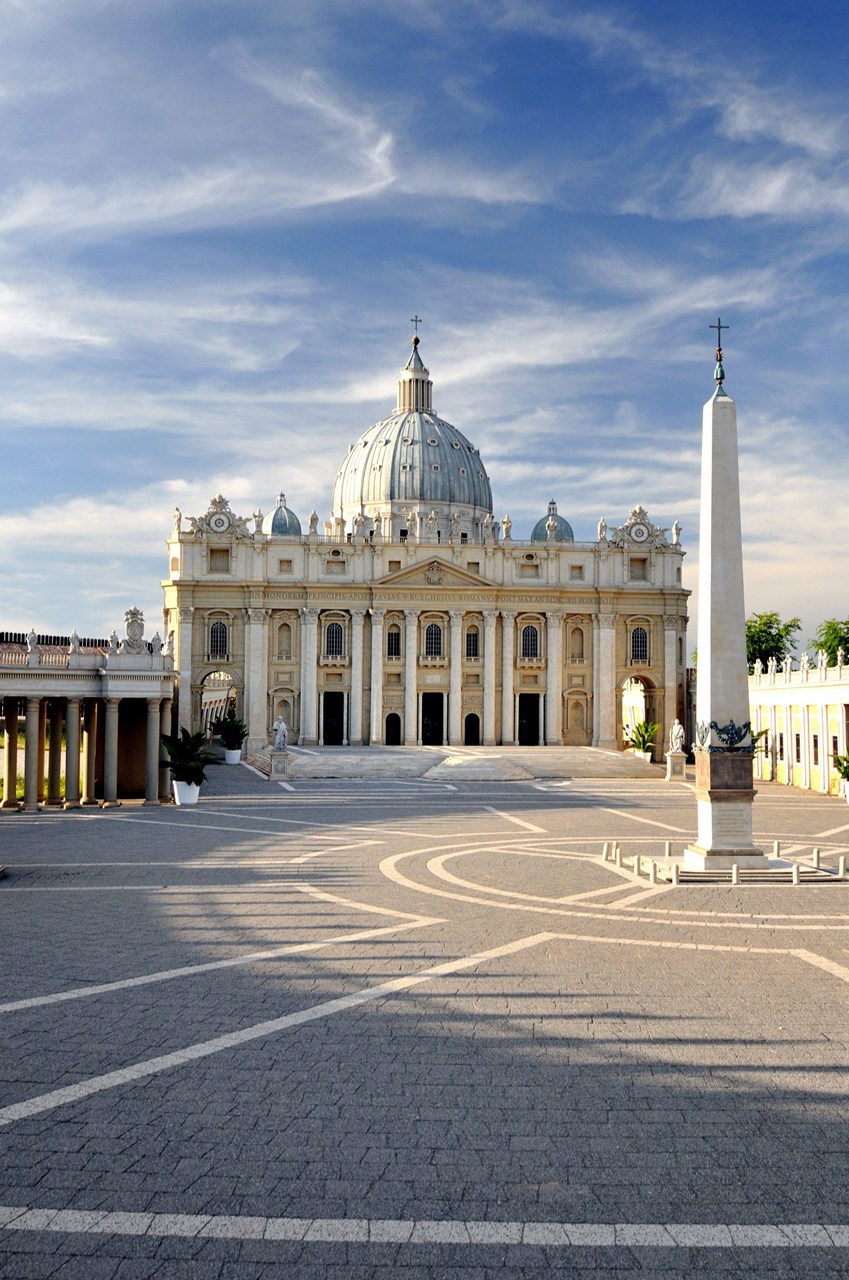
The Egyptian Obelisk St Peter’s Square Città Del Vaticano
St Peter's Square obelisk The obelisk in the center of St Peter square predates the square itself and was already here when Bernini decided to incorporate it in his design. It is one of the 13 ancient obelisks in Rome and originally came to Rome from Egypt in 40AD, by order of Emperor Caligula, who placed in its circus.
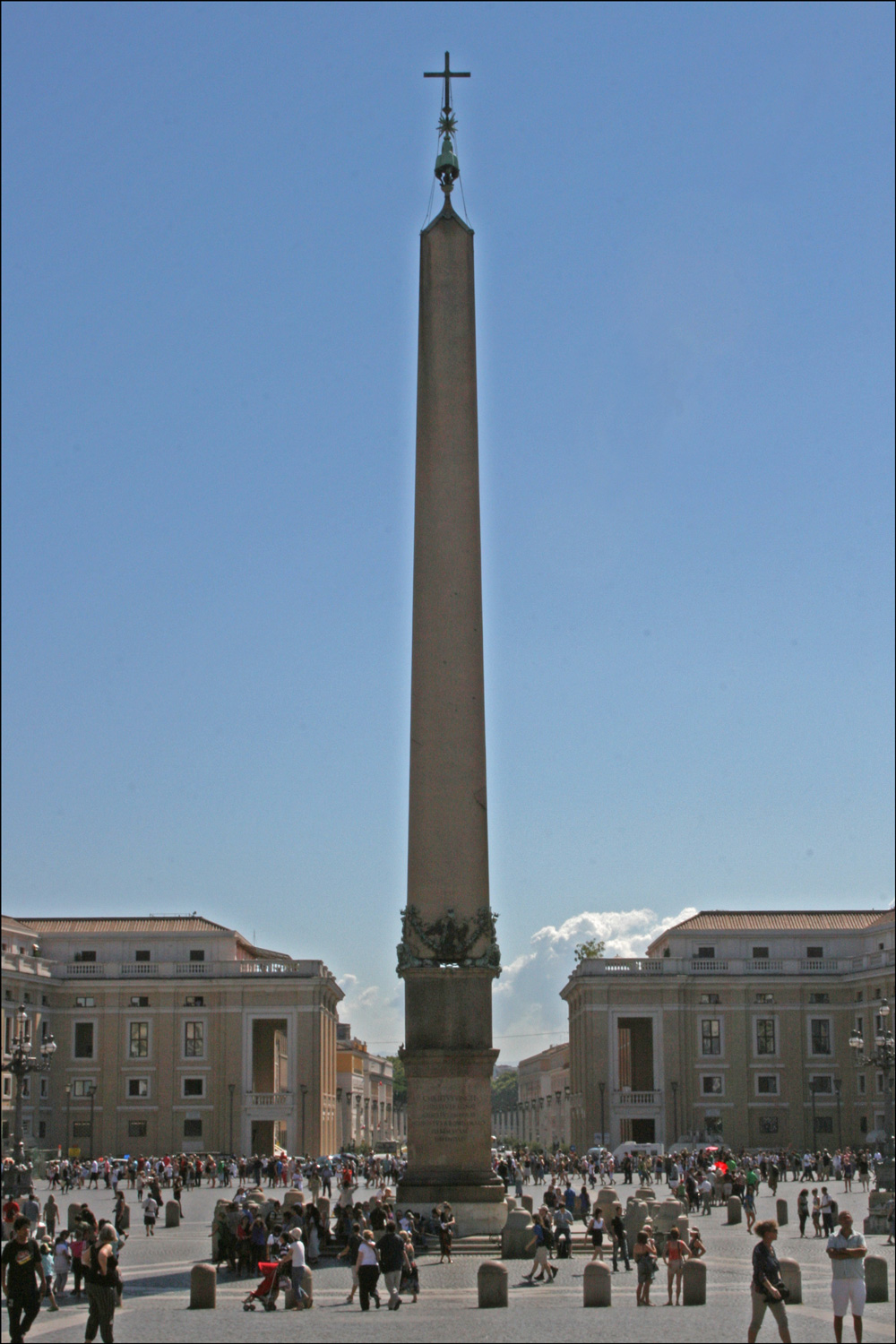
Saint Peter’s Square in the State of the Vatican City Steve's
VATICAN CITY Hidden among the paving stones of St. Peter's Square there is a simple clock and calendar. All you need is a sunny day. The 83-foot stone obelisk in the middle of the square acts as a.
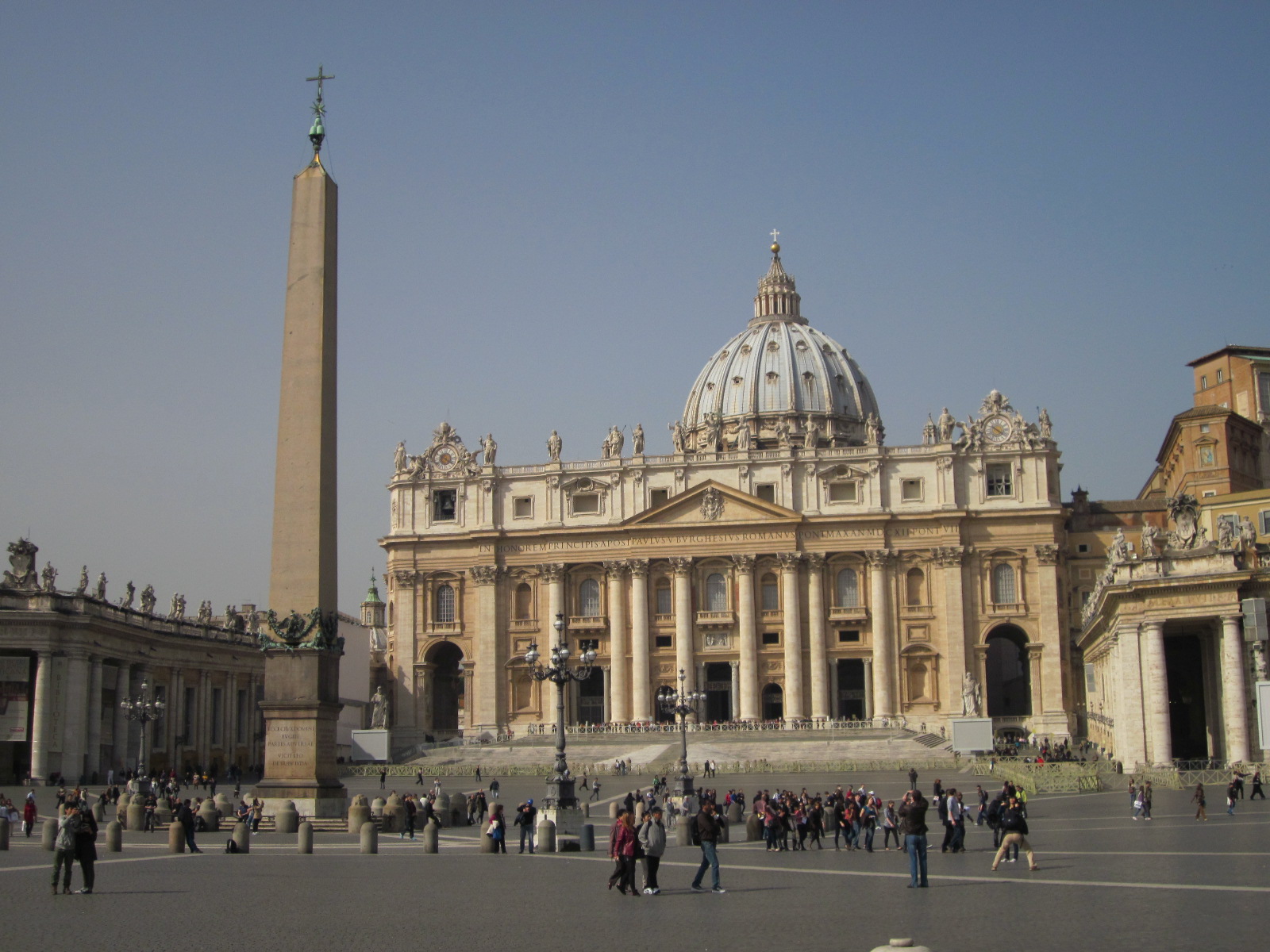
Sights of Rome 10. St. Peter's Square
The 25-metre-high granite obelisk that adorns the centre of Piazza San Pietro (St Peter's Square) is the only one of the city's thirteen ancient Egyptian obelisks to have remained standing since the days of antiquity. The Vatican Obelisk has no hieroglyphs, which makes it difficult to determine its exact age. It was brought to Rome by the emperor Caligula (r. 37-41) and set up on the spina of.
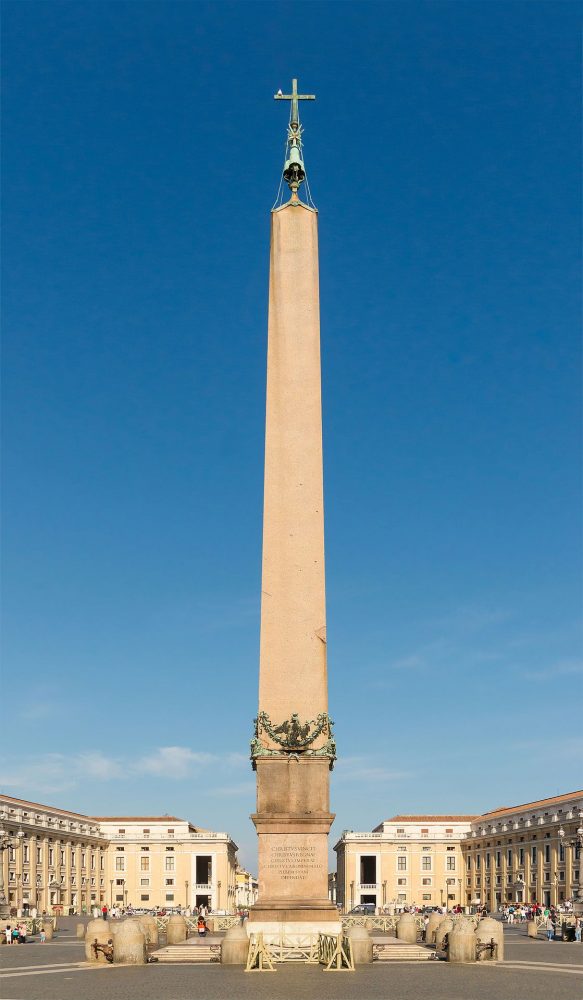
Here Are 8 Ancient Egyptian Obelisks the Roman Empire Took From Egypt
Saint Peter's Square (Latin: Forum Sancti Petri, Italian: Piazza San Pietro [ˈpjattsa sam ˈpjɛːtro]) is a large plaza located directly in front of St. Peter's Basilica in Vatican City, the papal enclave in Rome, directly west of the neighborhood of Borgo.Both the square and the basilica are named after Saint Peter, an apostle of Jesus whom Catholics consider to be the first Pope.